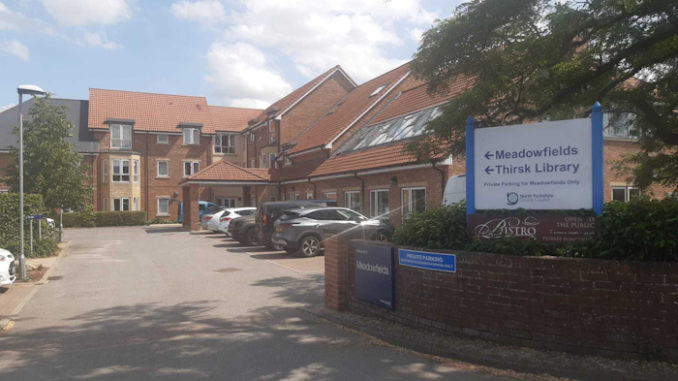
An alternative housing scheme in which older and disabled people can access a range of support while living independently has proved “a huge success story” for North Yorkshire, a committee charged with ensuring improvements to services for the county’s ageing population has heard.
With some 28 operational Extra Care schemes with 1,540 units of accommodation, North Yorkshire Council officers told a meeting of its care and independence scrutiny committee the scheme launched 20 years ago had increased capacity, reduced costs and improved outcomes for people.
While it has been forecast that in 20 years’ time one in three of the county’s residents will be aged over 65, councillors were told demand was highest in Harrogate due to the large population and lack of Extra Care facilities, but the need to provide supported housing in some of the more rural parts of North Yorkshire was also pressing.
Over the last ten years Richmondshire experienced the country’s highest percentage growth in the share of over-65s in, according to census data.
Almost one in four people in Richmondshire are now of pension age, compared with 17.5 per cent a decade ago, representing a 34 per cent rise in population share.
With the council facing spiralling social care costs and continuing its long-running battle with the Government for improved funding, the meeting heard the benefits of its Extra Care system included its typical cost of about £400 to £500 a week, whereas the cost of residential care was often between £1,000 and £1,200 a week.
Councillors were told each Extra Care scheme saves the taxpayer about £300,000 annually by reducing costs for people who would otherwise need to live in residential or nursing care.
The meeting heard officers overseeing the Extra Care initiative claim it had proved “a huge success story”, one councillor describe the initiative as “impressive” and another state such was the success of the county’s Extra Care scheme that people had moved to the area to take advantage of it.
Councillors were told there was also “emerging demand” for what is viewed as a modern alternative to care homes to support people with more complex needs, as well as for smaller schemes in rural areas.
The meeting heard the authority’s extra care model was “quite finely tuned” to larger scale schemes, so examining how to enable people in rural areas to live behind their own front door while having support on hand would be the council’s focus over the next few years.
The meeting was told some of the future Extra Care schemes would “look and feel like extra care”, but support as few as four people to continue to live in their communities.
Officers said the authority would respond to the demand by changing the way it agreed contracts with social housing providers from 2025.
The meeting heard concerns that some areas, such as Harrogate, had too few facilities for its elderly population, and while officers said further Extra Care homes were planned, they said some areas were served better than others, with numerous extra care schemes in the Hambleton, Richmondshire and Craven areas.
The committee’s chair, Leyburn councillor Karin Sedgwick said the authority should be proud at having developed one of the country’s largest extra care networks.
Scarborough councillor Eric Broadbent added: “I think our extra care homes are a marvelous thing that we’ve done on this council.”


Be the first to comment